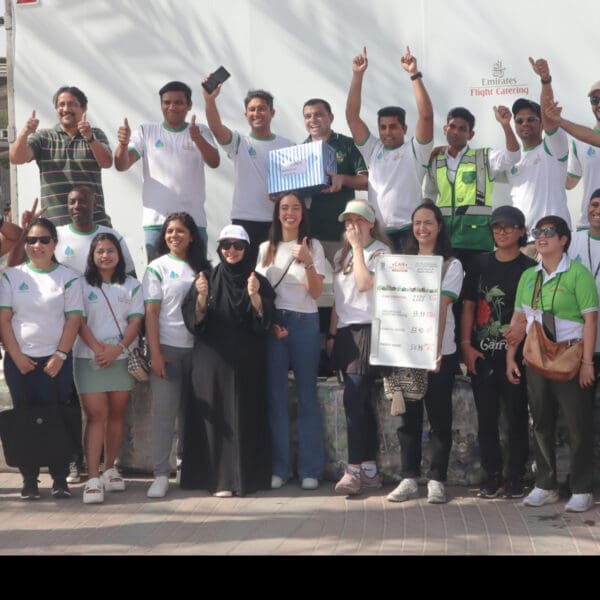 The Global Tourism Plastics Initiative has welcomed 26 new signatories, including businesses and organizations from every part of the global tourism value chain.
The Global Tourism Plastics Initiative has welcomed 26 new signatories, including businesses and organizations from every part of the global tourism value chain.
Led by the World Tourism Organization (UNWTO) and the United Nations Environment Programme (UNEP) in collaboration with the Ellen MacArthur Foundation, the Initiative unites the tourism sector behind a common goal of addressing the root causes of plastic pollution.
The new signatories include Booking.com, G Adventures, The Hongkong and Shanghai Hotels, Inkaterra, TUI Care Foundation, deSter part of gategroup, and International Aviation Waste Management Platform, among others. They feature suppliers of guest amenities, on-the-go packaging and waste-management platforms, as well as accommodation providers (both large groups and SMEs), leading online tourism platforms, tour operators, and associations working at the destination level.
The Global Tourism Plastics Initiative was launched in January 2020 and now counts on 46 signatories, illustrating how reducing plastics pollution in tourism remains a priority despite the challenges posed by the COVID-19 pandemic. The diversity of the signatories highlights the Global Tourism Plastics Initiative’s potential to promote systemic solutions that can be implemented locally and scaled up globally.
Tackling plastic pollution remains a priority for sector
The Global Tourism Plastics Initiative can lead to the reduction of pollution and waste across all parts of the tourism sector and support a responsible recovery from COVID-19 that leads to more sustainability and resilience
Within the current context of the COVID-19 pandemic, a circular approach to the management of plastic items and packaging can avoid any increase in the use of single-use plastics for hygiene purposes. It can also relieve pressure on waste management infrastructures and foster a more sustainable supply chain. In this sense, a circular economy for plastics is critical for the tourism sector to preserve and protect destinations and to recover responsibly from the current crisis.
UNWTO Secretary-General Zurab Pololikashvili said: “Moving towards the circular economy is a strategic approach for the tourism sector. The Global Tourism Plastics Initiative can lead to the reduction of pollution and waste across all parts of the tourism sector and support a responsible recovery from COVID-19 that leads to more sustainability and resilience.”
Elisa Tonda, Head of the consumption and production unit of UNEP, adds: “The COVID-19 pandemic has increased the need for urgent action on the climate, nature and pollution and waste crises which are driven by unsustainable consumption and production, but has also provided with a window of opportunity to prioritize sustainability as part of a green recovery. This new group of signatories of the Global Tourism Plastics Initiative reflects the continued commitment of the tourism value chain to increase circularity in the plastic system and maintain their ambition to tackle plastic pollution, moving forward in a post-COVID world.”
Recommendations informing recovery plans
Earlier this year, a series of recommendations for the tourism sector to continue taking action on plastic pollution throughout the pandemic were released. These serve as a basis to develop COVID-19 recovery plans, revise standard operating procedures, and define plastic management strategies. The recommendations are now available in English, French, Spanish, Arabic, Chinese and Russian.
Gerald Naber, Programme Manager, New Plastics Economy Global Commitment, Ellen MacArthur Foundation, adds: “The signatories of the Global Commitment are making encouraging initial progress on delivering their targets towards a circular economy, but a substantial acceleration of progress will be needed to achieve the 2025 targets.”
The Global Tourism Plastics Initiative forms part of the larger framework of the New Plastics Economy Global Commitment. Specifically, the Initiative acts as sectoral interface to the New Plastics Economy Global Commitment, which recently released its Progress Report for 2020.
About the Global Tourism Plastics Initiative
The Global Tourism Plastics Initiative unites the tourism sector behind a common vision to address the root causes of plastic pollution. Developed within the framework of the Sustainable Tourism Programme of the One Planet network, the Initiative is led by the United Nations Environment Programme and the World Tourism Organization, in collaboration with the Ellen MacArthur Foundation.
About the One Planet network Sustainable Tourism Programme
The One Planet Sustainable Tourism Programme enhances the sustainable development impacts of the tourism sector by 2030, with a special focus on sustainable consumption and production practices. The Sustainable Tourism Programme is part of the One Planet network, a multi-stakeholder partnership to implement SDG 12 on Sustainable Consumption and Production.
About the UN Environment Programme
The UN Environment Programme is the leading global voice on the environment. It provides leadership and encourages partnership in caring for the environment by inspiring, informing and enabling nations and peoples to improve their quality of life without compromising that of future generations.
About the Ellen MacArthur Foundation
The Ellen MacArthur Foundation was launched in 2010 with the aim of accelerating the transition to the circular economy. Since its creation, the charity has emerged as a global thought leader, putting the circular economy on the agenda of decision-makers around the world. The charity’s work focuses on seven key areas: insight and analysis; business; institutions, governments, and cities; systemic initiatives; circular design; learning; and communications.
About the New Plastics Economy Global Commitment
The New Plastics Economy Global Commitment unites businesses, governments, and other organizations behind a common vision and targets to address plastic waste and pollution at its source. Signatories include companies representing 20% of all plastic packaging produced globally, as well as governments, NGOs, universities, industry associations, investors, and other organisations. The New Plastics Economy Global Commitment is led by the Ellen MacArthur Foundation, in collaboration with the UN Environment Programme.


















